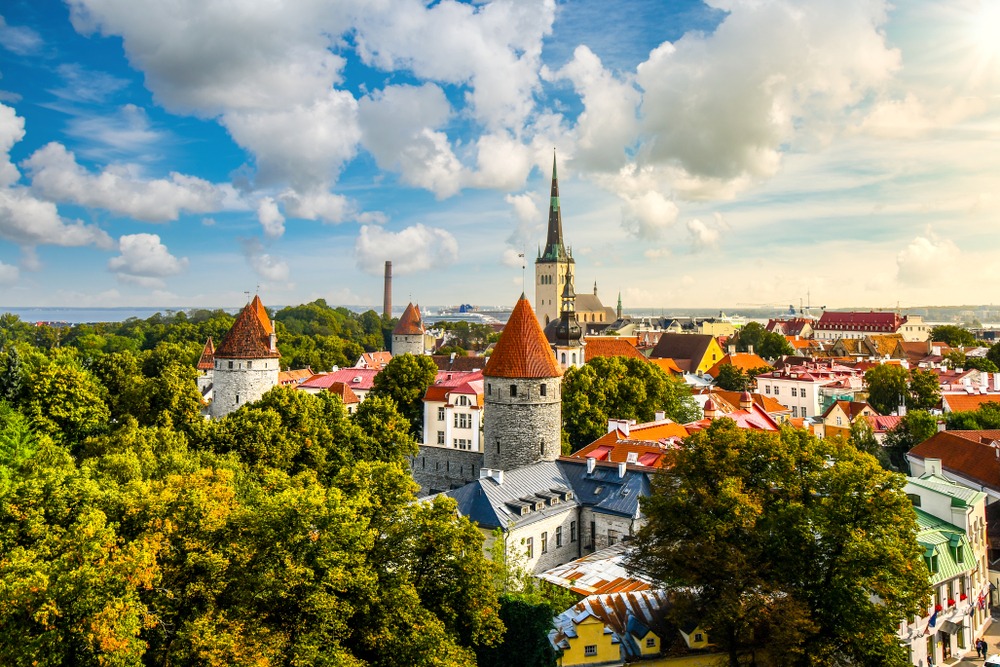Smart cities are still a new phenomenon that only begins its journey in the modern world. However, it has already reached certain milestones on its way by implementing blockchain and other innovative technologies that make cities “smart”.
How modern cities look now and in what way blockchain can change that look? Let’s find out.
Smart Cities: Current Landscape
Multiple problems and challenges plague the modern urban sector. In fact, all these are not new since they’ve been growing in scope with the growth of population:
- Resource scarcity;
- Power shortage;
- Exorbitant costs of living, and others.
Blockchain can deal with all these and many other challenges. Realizing that, governments that now “built” smart cities think of possible ways to integrate blockchain into existing workflows. Some of them have already succeeded in this venture, bringing blockchain to various aspects of city life.
The specific applications and potential use cases of blockchain in smart cities are the exact topic we’re going to further cover in the article. Let’s dive in by starting with possible solutions.
Using Blockchain for Smart Cities
Since blockchain-based smart cities are in a relatively early development stage, blockchain experts and ordinary amateurs around the world speculate about its potential use cases that have all chances to soon become a reality.
Based on blockchain’s main features, its potential solutions for smart cities include:
- Universal ID cards stored in a cryptographically secure ledger;
- Automated property, title, and land management with smart contracts;
- Interoperable and seamlessly interconnectable smart devices;
- Streamlined fares processed through a single platform;
- More efficient management of natural resources with blockchain-stored data;
- Advanced security for IoT devices with reliable, distributed blockchain ecosystem;
- No data fragmentation and blocking between state departments;
- Reduced administrative costs due to automated processes with no middlemen;
- Rewards in digital assets provided for citizens for performing “smart” activities, and others.
As we can see, the potential of blockchain for smart cities is great. Now let’s move from ideas to actions and consider blockchain’s practical applications in smart cities.
Blockchain-powered Smart Cities
Dubai

With its outrunning movement to technology innovation, Dubai became the first smart city powered by blockchain. Who could even think that this small Arabian village will transform into a global business center in just 30 years?
The Government of Dubai is in works on 20 blockchain solutions for multiple industries, from administration to public transport. For that purpose, Dubai partnered with IBM and Consensus that will perform as advisors during the process of the city’s digital transformation.
So, what are the revolutionary blockchain solutions soon to be brought by the city of Dubai? For instance, the DubaiPay online payment platform will utilize blockchain technology to monitor and process online payments in near-real time — something that the current systems don’t allow.
Since Dubai is now actively moving towards digitized transactions, papers in government and other operations will soon become a thing from the past. In fact, paperless transactions are the exact purpose of the FotoChain project currently underway.
You may also like:
➔ OpenLedger Spoke about Blockchain Tech for Government at Abu Dhabi Workshop [Interview]
Read the interview with OpenLedger’s experts about the opportunities blockchain can bring to the Abu Dhabi region.
Tallinn

It might sound surprising, but Estonia began using blockchain even before it caught public attention. Due to heavy DDoS attacks that deranged state services, the government decided to reconsider its approach to data security.
Now Tallinn is moving towards the creation of e-Estonia — a digitized country that establishes harmony between urban and digital development through conventional systems for both infrastructures.
One of the most popular programs is e-residency, demonstrating the idea of the widely accessible Estonian business environment. With the system of digital identities, everyone who lives in the EU can remotely establish an institution in Estonia. In this way, the solution removes geographical borders, reduces paperwork, and saves time for European entrepreneurs.
In 2017, the Estonian government announced the partnership with the Bitnation blockchain company to offer a public notary service on blockchain. More to it, Tallinn is currently working on other initiatives by supporting several blockchain startups.
Delaware

In 2016, the state of Delaware introduced the Delaware Blockchain initiative designed to promote the development of DLT-based solutions and smart contracts in both the private and public sectors.
What became the stimulus for such a revolutionary act? The government authorities recognized the reliability of electronic transactions on blockchain and decided to sign a bill legalizing those in various sectors.
Currently, the state of Delaware continues performing activities on blockchain adoption. One of the outstanding examples is the partnership between the Symbiont company and the ex-administration of Delaware to move state archives to the blockchain.
Yinchuan

Yinchuan is just the first of 1,000 cities that the Chinese government is planning to transform digitally. In fact, authorities have already made significant movements in this direction by replacing documents, tickets, and other credentials with face IDs.
How does this idea work in a nutshell? To use public transport, for instance, passengers don’t need to purchase tickets. Instead, special software scans their faces linked to appropriate bank accounts and automatically withdraws their money upon scanning.
Food purchases are another aspect that the government decided to streamline. No need to go shopping, residents can order groceries they need via a mobile app and then pick them up in refrigerated smart lockers.
What about blockchain? Currently, the city of Yinchuan has no integration with this technology, but soon, this situation may change. In 2017, the Wuzhen institute in Beijing issued a white paper on the development of the blockchain industry. A few months after that, the National Committee of Experts on Internet Financial Security Technology presented the Compliance Blockchain Guidelines.
Clearly, we may talk about a positive shift towards blockchain adoption in the region despite China’s conservative stance towards blockchain in general. The authorities are still studying blockchain technology and its potential for various industries and verticals.
You may also like:
➔ Blockchain Revolution in the Governance of Nations and Cities
Find out what role blockchain can play in the governance of states and cities across multiple aspects of administration.
Smart Cities: a Glimpse into the Future
The report about Smart Cities by McKinsey states that by 2020, the number of smartphone users worldwide will expectedly reach 6,1mln, while the number of connected devices will hit the 20,4bln mark. Given that and other factors, not surprisingly that modern cities are now rapidly becoming more digitized and thus “smart” thanks to the performed initiatives.
We can already argue that the potential impact of blockchain technology on urban society is significant. Among the most influential blockchain initiatives currently performed in this sector, we need to highlight Blockchain Cities Alliance (BCA).
Great question. Dubai certainly aims to be the first to find out! Other cities are closing in though with New York City and others also initiating such efforts. This is why we have created the #Blockchain Cities Alliance @bchaincities Stay tuned for more information and website https://t.co/hYDK5k09zj
— Blockchain Cities Alliance (@bchaincities) May 31, 2018
The organization advocates for the connection of extant smart cities with blockchain and supports those who already use it. BCA acts as an intermediary between smart cities and blockchain experts, blockchain investors, and other influential figures.
As we can see, digital transformation changes the face of modern cities drastically and dramatically. IoT coupled with blockchain is the force that brings this revolutionary power.





Blockchain Insights
Join our mailing list to receive OpenLedger Insights publications weekly.
Thanks! Please check your inbox to verify your email address.
By clicking “Subscribe”, you’re accepting to receive newsletter emails from OpenLedger Insights every week. You can easily update your email or unsubscribe from our mailing list at any time. You can find more details in our Privacy Policy.